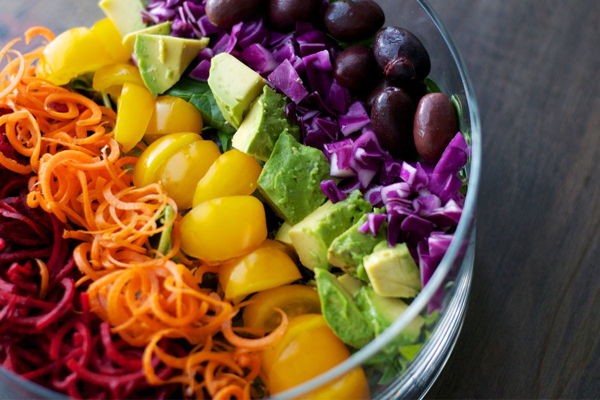By Marcey Klein BS, CNC
Breast Cancer is a multifaceted disease with many areas to look at in preventative care. One negative facet we are seeing more of now is toxicity in the environment and in our bodies. Pesticides, which are sprayed on our conventional foods, in our yards, and which leach into our water, can get stored in our bodies and cause hormone, cell, and gut disruption. Phthalates from conventional beauty supplies like nail polish, perfumes, and those found in plastics to make them more pliable can cause hormone disruption and toxicity as well. All of these can exert an estrogenic effect in the body and can cause endocrine disruption because these hormones are stronger than our own estrogen, latching on to receptor sites meant for our own hormones. Breast cancer risk is increased with a higher level of estrogen, especially with these more aggressive synthetic versions.
We can try to limit them from getting into our bodies in the first place by avoiding foods with pesticides sprayed on them and by eating organic. Some foods absorb pesticides more than others or have multiple pesticides sprayed on them. Foods that you should try to only buy organic: Peaches, apples, strawberries, grapes, cherries, nectarines, pears, raspberries, bell peppers, celery, spinach and lettuces, potatoes, tomatoes, and garlic. You also want to have organic milk, meat, and butter and fats, because the pesticides will be concentrated in them along with any antibiotics and hormones that were given to the animal.
We need proper gut health, meaning beneficial bacteria and prebiotics (aka, soluble fiber). Having a healthy gut will help eliminate harmful estrogens. Refined sugars, grains, alcohol, and processed foods damage our good bacteria and raise our insulin levels and our cancer risk. Ground flax seeds, which are the richest source of plant lignans and are loaded with soluble fiber and antioxidants, help move out estrogens. Studies have shown that flax seed consumption correlates with reduced cancer risk. I put a tablespoon of ground flax in my morning smoothie, but if one has hormonal issues or has high cancer risk, then two tablespoons would be the therapeutic dose.
Another factor that contributes to breast cancer is cellular damage due to heavy metals, oxidative damage, and lack of cofactors and nutrients to repair this damage. I’m big on antioxidants, good nutrition, hydration, and detoxification. Getting phytonutrients from “eating the rainbow” is important, and taking a good multivitamin to fill in the gaps is essential. Vitamin D plays an important role in cancer prevention, as does vitamin C with bioflavonoids. Include folate, which is essential in healthy cell replication, vitamin A to regulate cell death, all the minerals (as they help with so many enzyme activities), and omega 3 oils for cell membrane repair.
Cruciferous vegetables are at the top of my list for optimizing the fight against breast and other cancers – especially in the sprouted form, they can be 100 times more potent than their counterparts. Sprouted broccoli is a great example. Some other cruciferous vegetables include cauliflower, Brussels sprouts, kale, cabbage, and bok choy. These vegetables contain sulfur, a very important nutrient needed for detoxification of estrogen, and helping to slow the development and spread of cancerous cells while stimulating the release of enzymes that help fight against cancer. We want to include colorful foods like carrots, squash, yams, and mangos to give us a dose of antioxidant rich beta carotene. Legumes, organic soy, and beans help to lower levels of circulating estrogens and block cancer enzymes. Citrus fruits and bioflavonoids help increase anti-tumor enzymes and increase our level of vitamin C to protect and repair our cells. Garlic, eggs, and onions are high in detoxifying sulfurs. Shitake, maitake, and reishi mushrooms help to stimulate T cell growth; green tea helps with cancer cell death; sea vegetables contain iodine, a nutrient concentrated in the breast and thyroid tissue important for regulating cellular health and replication. Berries provide us with important antioxidants for cellular repair; pineapple and papaya are high in important enzymes. Turmeric is a must to fight cancer and tumors and it is also good for the liver.
Eating a whole food, nutrient dense, mostly organic plant-based diet will aid detoxification and support cellular systems in the body. Include variety in your diet, and lower your intake of sugar, dairy (unless raw), alcohol (since this has an estrogenic effect on your body and interferes with liver detoxification), conventional meats and dairy (because of the added hormones), diet sodas (the sweetener aspartame has been shown to increase tumor growth), and refined and processed foods.
Take care, be well, and come into New Leaf Market for any further questions you might have.




















